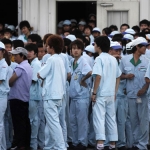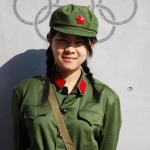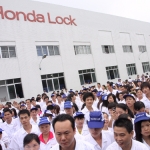Lance Carter, Ongoing Struggles, stickyed, Workers »

Between May and July of this year a series of high-profile strikes in foreign-owned auto parts plants spread throughout China’s coastal regions. Strikes in China are nothing new, but the recent strike wave was remarkable in at least three respects: the amount of concessions granted to workers; the degree of publicity it initially received in the Chinese media; and the prospects for showcase union reform that it has helped push onto the agenda. Although the strikes were directed primarily at unfair wages, there were some attempts to address the more political question of union representation. Lance Carter visited the Pearl River Delta a few weeks after the last strike ended and was able to meet up with and interview several workers who had participated in the strikes. This article is based largely on those interviews.
Chinese Left, Lance Carter »

This article is an overview of the history of the Chinese New Left; their attempt to move away from a left-wing political agenda defined by the CCP; their successes, limitations, and failings in this regard; and the role discourse on the idea of a “Chinese alternative” has played in New Leftist debates with liberals. The article focuses on two prominent intellectuals from the Chinese New Left-Wang Hui and Cui Zhiyuan. It argues that the contradictory role of the Chinese state as both mitigator and patron of market reforms is one of the main obstacles to developing a more radical left-wing political movement in China.
Lance Carter, Ongoing Struggles, Workers »

The wildcat strike at the Nanhai Honda factory which formally ended on June 4th with a partial victory for workers, has subsequently inspired two other Honda factories in the Pearl River Delta to go on strike. In addition, workers from several Taiwanese-owned factories have adopted similar tactics, holding a sit-in in Jiangsu and blocking roads in Shenzhen.
